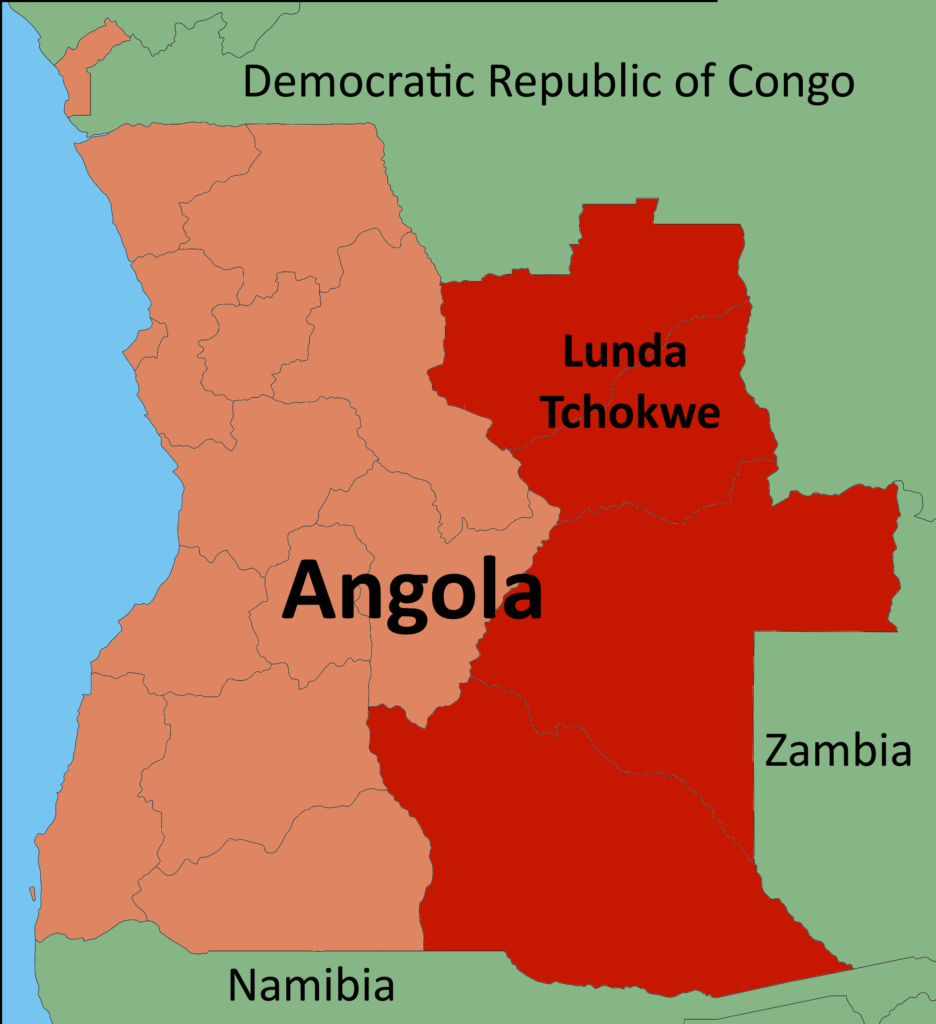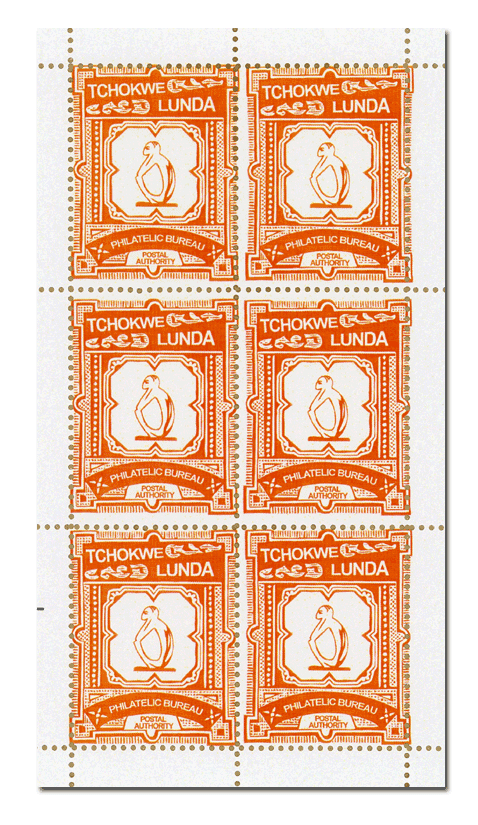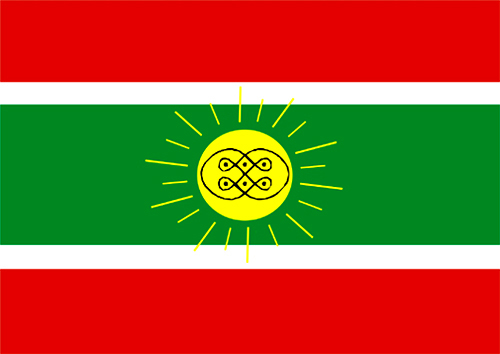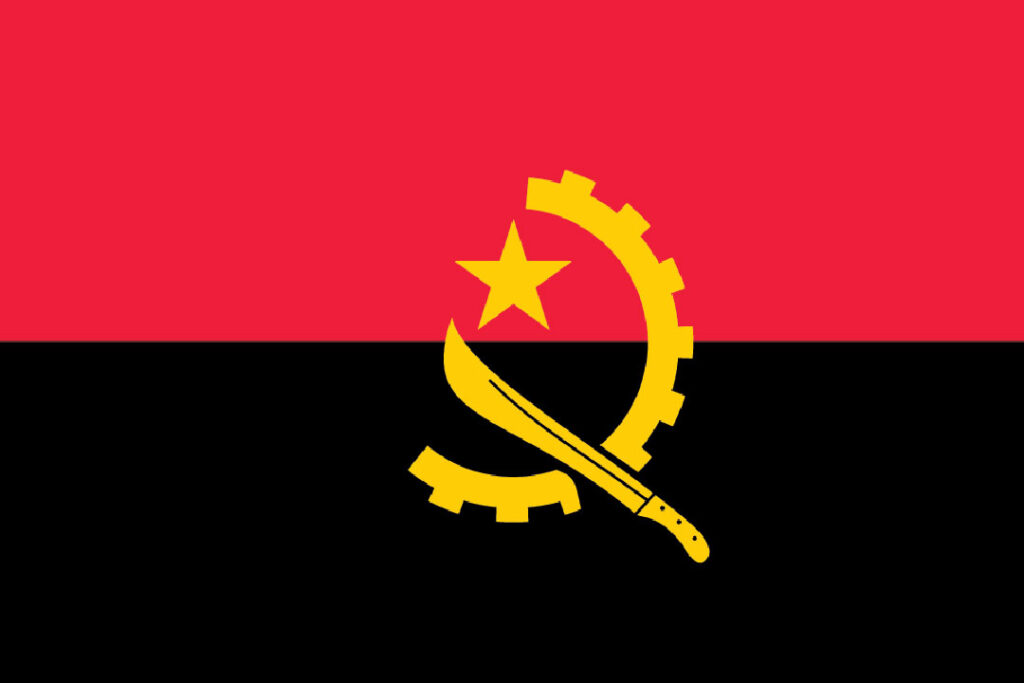Angola: Lunda Tchokwe
One apparently self-funded organisation is fighting for the autonomy of Angola’s diamond-rich but poverty-stricken eastern provinces.
by Louise Redvers
Angola, endowed with both kimberlite and alluvial diamond deposits, is the world’s fourth-largest diamond producer by value. Its diamond industry generates an estimated $1 billion in revenues annually. But for all the money the precious stones bring in, most of the people living in Angola’s eastern provinces, where the mines are situated, live in grinding poverty.
Official economic statistics for the four eastern provinces – Lunda Norte, Lunda Sul, Moxico and Kuando Kubango – are scarce, but a visit to the region tells a story of woeful underdevelopment. Roads off the diamond routes are few and far between; there is an obvious lack of schools and hospitals, and the handful that can be seen are rudimentary at best. While there has been no census since 1976, the combined population of these provinces is estimated to be about 3m.
The region’s inhabitants, who are mostly subsistence farmers, complain bitterly about the state of affairs. Not only have they felt little financial benefit from the diamonds, they say, but they live in a quasi-military zone controlled by private security companies brought in by mine owners with links to the ruling elite.

It is this dissatisfaction that led to the creation, six years ago, of a movement long on initials but short on concrete credentials: the Legal and Sociological Manifesto Committee of the Protectorate of Lunda Tchokwe, also known by its initials in Portuguese: CMJSPLT.
The group’s president,José Mateus Zecamutchima, told Africa in Fact that his organisation has cells in 23 out of 32 municipalities across the territory. If “clandestine” members such as public officials and police officers are included, he boasts, there could more than a million members.
On one of its several websites, the CMJSPLT claims to have a shadow government. Without any known source of international funding, the CMJSPLT appears to be run largely virtually. Mr Zecamutchima, a 49-year-old Cuban-trained computer engineer, told Africa in Fact: “Our fight is patriotic. It is a commitment to the Lunda Tchokwe nation. We do not have financing or support from any national or international institutions. We survive thanks to God.”

Unlike the Frente para a Libertação do Enclave de Cabinda (FLEC), which has been waging a guerrilla war against the Angolan government for five decades, Mr Zecamutchima says his group has no plans to take up arms but instead seeks dialogue and recourse through international courts, though it has yet to file any actions.
While the veracity of Mr Zecamutchima’s claims is hard to test, the Angolan government clearly feels the movement to be a real threat. In January 2010, government forces rounded up more than 40 CMJSPLT members and imprisoned them on charges of crimes “against state security”.
Although most were released in December 2010, reportedly because of a lack of evidence, ten were re-arrested 14 months later, in February 2012, and recharged. They are still awaiting trial. Their case was due to be heard in August 2013 and then again in October, but the trial was delayed on both occasions, apparently due to a lack of legal representation.
Amnesty International has made several appeals to the Angolan government to address the poor prison conditions in which CMJSPLT members are allegedly being held, as well as calling for better access to medical support. Several members of the group in custody are currently on a hunger strike.
While the CMJSPLT was only formalised in 2007, it claims to trace its roots back to the 17th century, when the eastern provinces were part of the ancient Kingdoms of the Tchokwe and Lunda tribes. These kingdoms spanned areas that overlap present-day Democratic Republic of Congo (DRC), Zambia and Angola. While the CMJSPLT are not claiming any part of Zambia or DRC areas, the area they claim within Angola is just over 400 000 square kilometres, about a third of the country’s total territory.
The CMJSPLT claims that the Portuguese did not colonise this area, that it was merely a protectorate, and on that basis wants autonomy from Luanda to manage its own affairs. It denies that it is simply seeking to pocket Angola’s billion-dollar diamond revenues, insisting that it wants simply to ensure that the region’s wealth is shared evenly among its people, rather than being sent straight to central government funds in Luanda.
Mr Zecamutchima told Africa in Factthat the CMJSPLT is seeking full negotiations to discuss its autonomy plan, which is loosely modelled on the agreement Portugal has with the politically autonomous Azores and Madeira archipelagos. Mr Zecamutchima said the group has held numerous meetings in Luanda with government officials and MPs – to whom they have complained about the arrests and human rights violations – but were yet to set up formal talks.

In a letter sent to the CMJSPLT in August 2013, Edeltrudes Gaspar da Costa, state minister within the ruling MPLA, accused the group of taking out of context a speech made by Angolan President Jose Eduardo dos Santos. During the speech the president called for frank and open dialogue to resolve conflicts, which CMJSPLT took as an invitation to push the government for dialogue.
In Mr da Costa’s letter, seen by Africa in Fact, the minister rejects the possibility of negotiations with CMJSPLT— “It is necessary not to take out of context words that were said…”—and offers a clear warning of how the government views its cause: “In the guaranteeing of national security, the safeguarding of the constitution, national sovereignty and territorial integrity,” he writes, “the state would not hesitate to energetically combat all acts that threaten stability, security and public order….”
As with many separatist movements, the CMJSPLTis also splintered. Jota Filipe Malakito, who was once aligned with Mr Zecamutchima, is now running his own faction, calling himself the “founding president” of the “Manifesto of the Lunda Protectorate”.
In November 2013 Mr Malakito submitted a complaint to the International Criminal Court (ICC) against the government of Angola related to his prolonged detainment between 2009 and 2010. During this time, he alleges, he and other members of the group were tortured. Ironically, Mr Malakito was ousted from his leadership position within the CMJSPLT during his time in prison, with other members accusing him of working for the government.



